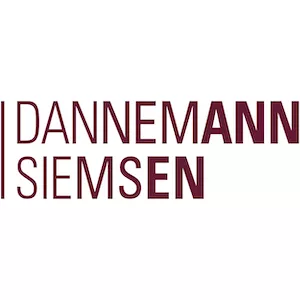- within Intellectual Property topic(s)
The Nagoya Protocol is a global agreement, supplementary to the Convention on Biological Diversity, which regulates the fair and equitable sharing of benefits arising from the utilisation of genetic resources and traditional knowledge associated with them among the user and provider countries (parties), thereby contributing to the conservation and sustainability of biological diversity.
Although it was drafted in 2010 and signed between 2011 and 2012, it only entered into force on October 12, 2014, 90 days after the fiftieth instrument of ratification was deposited. The Protocol has 125 members and 127 ratifications (Montenegro and Oman are waiting 90 days from the date the instrument of ratification was deposited for the Protocol to come into force in their countries).
In Brazil, the text of the Nagoya Protocol was ratified with the publication in the Official Federal Gazette (DOU) of 12 August 12, 2020 of Legislative Decree 136 of August 11, 2020. The Protocol, however, will only come into full force 90 days after the Government deposits the instrument of Ratification with the Secretary-General of the United Nations.
The Protocol's intention is to bring legal certainty and transparency to both countries that supply and those that use genetic resources, and it is the users' responsibility to observe the Parties' national rules to access and share the benefits arising from access to the genetic resources. Several sectors are interested and involved in the research, development and use of genetic resources, with an emphasis on the agricultural and pharmaceutical sectors.
Brazil's interest as a provider of genetic resources is indisputable, since, according to the UNEP (United Nations Environment Program), we have between 15% and 20% of the world's biological diversity, with more than 120 thousand species of invertebrates, nine Thousand vertebrates and four thousand species of plants.
So much so that the topic of access to genetic heritage, associated traditional knowledge and the respective sharing of benefits has been regulated since 2000, initially by Provisional Measure MP 2,186-16 and, after November 17, 2015, by Law 13,123, known as the “Biodiversity Law” and its regulatory Decree 8,772/2016, which established the need to register research and development activities carried out with Brazilian biodiversity.
The Legislative Decree that ratified Protocol 136/2020 declared Law 13,123/2015 as the domestic law for its implementation. In other words, whoever wants to access our biodiversity and our associated traditional knowledge must obey said Law 13,123/2015 and its Decree 8,772/2016.
On the other hand, Brazil's interest as a user of genetic resources is also indisputable, notably in agriculture, since, according to the CNA (Confederation of Agriculture and Livestock in Brazil), we are today the fourth largest exporter of agricultural and cattle products in the world, with approximately USD 96.9 billion, which has contributed decisively to our macroeconomic stability and also to facing the economic effects caused by the COVID-19 pandemic.
However, several of our main agricultural products are not part of the Brazilian biodiversity: soya is originally from the Manchuria region in China; corn from Mexico; sugarcane from India and New Guinea; coffee from Ethiopia; and cotton from Arabia.
In these cases, would Brazil have to share the benefits of using these agricultural products with their countries of origin? We believe that this is not the case.
This is because the Legislative Decree 136/2020 that ratified Protocol also stated that economic exploitation for the purpose of agricultural activities resulting from reproductive material of species introduced into the country by human action until the Protocol comes into force will not be subject to the sharing of benefits.
This statement is supported by Article 8(c) of the Protocol, which authorises the Party to consider, in the development and implementation of its legislation on access to and the sharing of benefits, the importance of genetic resources for food and agriculture and their special role for food safety.
However, in addition to the issues mentioned here, the success of the Protocol will depend on how Brazil will manage, on the one hand, the legislation from each of the countries which are Parties that have genetic resources of interest to Brazil and, on the other, the monitoring of access to and use of Brazilian biodiversity by the Parties, by defining inspection and control mechanisms (checkpoints).
Participation in the Meetings of the Parties (MOPs) will also be essential, in which topics will be discussed and defined in which there is no consensus on scope and interpretation, as is the case with digital genetic sequence information.
All of this always with the objective of achieving fair and equitable sharing of the benefits of access to the genetic resources and the traditional knowledge associated with them, thereby contributing to the conservation of biological diversity.
Roberto Faria de Sant'Anna Junior is a lawyer, associated to the Dannemann Siemsen firm and a member of the Agribusiness and Agrarian Relations Commission at the Brazilian Bar Association in São Paulo (OAB/SP).
Source: Consultor Jurídico 30/09/2020
The content of this article is intended to provide a general guide to the subject matter. Specialist advice should be sought about your specific circumstances.
[View Source]

